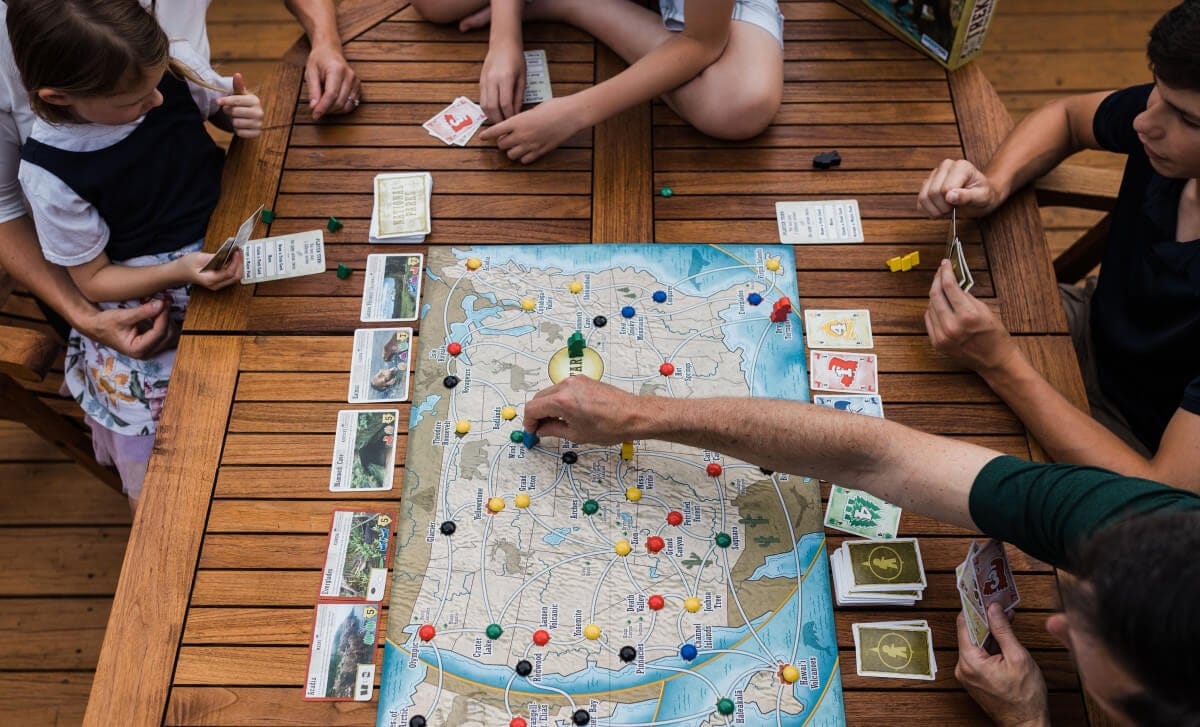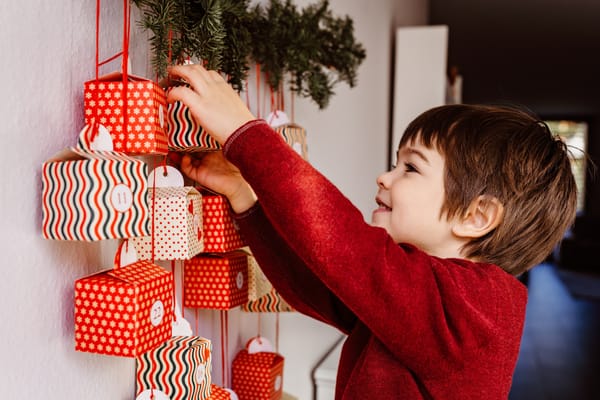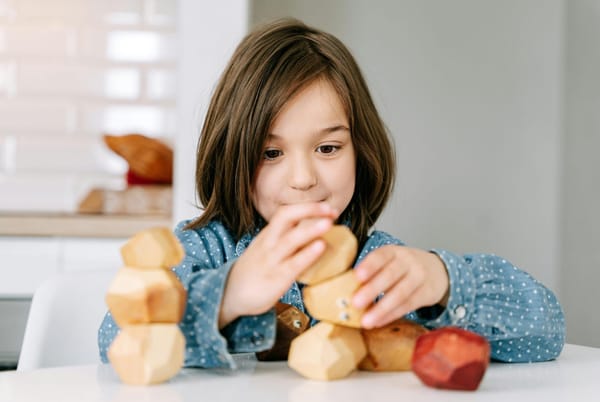Board games are a great way to spend time as a family and learn as you play, says Kathryn Houldcroft
On the chilly, dark night of winter, playing board games together is a wonderful way to spend time with family and friends. It’s a way of connecting with each other that would have been familiar to our ancestors long before computer games.
Research suggests that there are many social and emotional benefits to playing games together. For younger players, there is the chance to learn how to get along with others. When games are for all ages, younger players follow the examples shown to them by older players of taking turns, playing fair and being pleased for others.
Esther Solis is mum to Avalon, six, Rhys, three, and Jay, one. They enjoy playing memory and matching games, and are learning card games together. Esther believes that playing games has taught the children many useful social and educational skills: ‘They experience lots of counting, patience with taking turns, learning the rules, not to cheat and that it’s okay if you don’t win every time as long as you’re having fun,’ she says.
Educational benefits
Playing board games can be educational too. Research in the US in 2008 showed that children’s numeracy skills improved after playing games such as Snakes and Ladders.
Helen Fuggle is mum to Ellemi, nine, and Harry, six. She teaches maths to adults and says: ‘I think Top Trumps is great for reading and comparing numbers. I play it with my adult numeracy students.’ For her children, family games help encourage social skills. ‘Most games give them the opportunity to learn to play fair and be gracious in defeat (often these skills need a bit of prompting from us!).’
Playing games can also help to develop literacy skills as children learn to read instructions and identify words on the cards and board. Tamsin and Frazer Glendinning are parents to Fred, seven, and Tess, three. As a family they regularly play games. Tamsin says: ‘Fred’s spelling has definitely improved and also his general knowledge from the trivia games.’
Happy memories
For most families, however, board games are more than just an educational tool. For many of us playing them brings back happy memories from childhood and can reflect our upbringing.
Some games can even become family heirlooms. Tamsin says: ‘The Scrabble set we play on was my Mum’s and is nearly 40 years old complete with a hand knitted tile bag!’ To reflect her Mexican-American heritage, Esther also plays Spanish language games with her children. She says: ‘We recently received a Mexican bingo type game which we really enjoy playing together.’
Claire, mother to George, 15, and twins, Kitty and Lottie, 11, has always played games with her children, even now that they are older. ‘I think I try my best to keep things as old fashioned and quiet as they used to be when we were children and that is why we still try and play games,’ she explains. ‘When the children were small playing games kept them busy and happy whilst keeping them from watching too much TV.’
Simon Holdom, dad to Charlotte, six, likes the sense of connection that it brings.’It’s a cheap and easy thing to do together,’ he shares. ‘I work a lot during the week and so playing games at the weekend is our quality time when I can give Charlotte my undivided attention.’
Creating traditions
Often parents try to play games on a certain day of the week, or at a set time. ‘We try to set aside half an hour on a Sunday afternoon to play games,’ says Helen. ‘It’s a way of bringing us closer together.’
Claire favours an end of the week ritual. ‘We went through a phase when the children were little of trying to set aside Friday nights. Now we share Friday night together when we can and it gives us the chance to be with each other when the rest of the time we are rushing around.’
There are also certain times of the year when families like to play games. Holidays give parents and children time to play and even learn new skills together. ‘Card games are great for travelling and taking on holiday,’ enthuses Helen. ‘This summer we were able to spend time teaching Harry how to play some simple games with a pack of cards.’
Simon agrees: ‘When we go on holiday next year we will be taking only board games to play as this is such a treat for all of us.’ Many families also have a tradition of getting out the board games over the Christmas period; an antidote to the screen time that can dominate the festive season. As a family we have a custom of buying a new game every year to play over the holidays.
‘On a winter’s night we sit on the floor in front of the fire and play board games together,’ Simon explains. ‘It creates a calm atmosphere and such a lovely cosy family feeling. This isn’t something you can get from a computer game.’
Playing games can create happy experiences where family and friends come together. It can reflect old traditions or make new ones and is something that includes everyone, whatever their age or ability. What’s more you don’t need a power source to shake a dice or move a counter.
Kathryn organizes successful clothes swaps, writes the Knee High guides and is an anti-waste campaigner
Cooperative Games
While many of us have played games where we compete against one another, there are also a range of games which encourage players to work together. In a cooperative game there is a common goal that all players, regardless of age and ability, have to unite to achieve. As a family we have enjoyed playing games by Haba and US based Peaceable Kingdom.







